Children’s Parliament has embarked on an exciting new project to explore the world of Artificial Intelligence (AI) with children across Scotland.
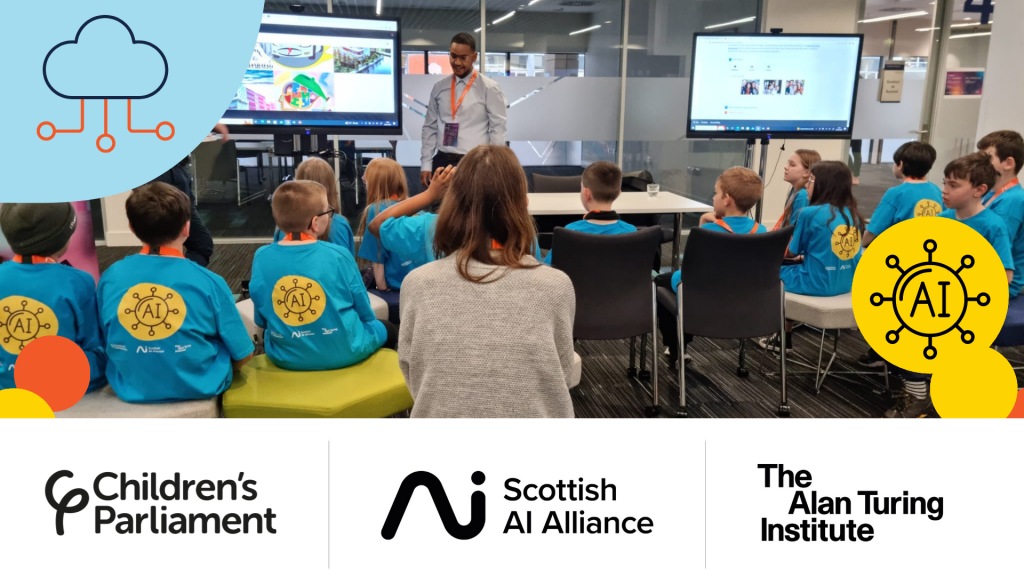
Working with our partners, The Alan Turing Institute (ATI) and the Scottish AI Alliance (SAIA), we are finding out how children interact with AI, what they think the possibilities and risks are for the use of AI for children in Scotland, and how children can become meaningfully involved in AI development and policy.
Taking a children’s rights approach, we have been asking Members of Children’s Parliament to think about what needs to happen for AI to play a role in keeping all children happy, healthy, and safe. To try to capture as broad a range of views as possible and to reflect the diversity of experiences of children in Scotland, we are working with classes ranging from P4 to P6 in four schools in different locations across Scotland: Glasgow, Stirlingshire, Edinburgh, and Shetland.
Stage 1 of the project has now been completed. Our report and film on what the children have done so far can be found below. Stage 2, an in-depth look into some of the key themes that MCPs identified in the first stage, is now underway.
It is important for children to know about artificial intelligence because it is the future and it is good to learn new things when they affect our lives.
Member of Children’s Parliament, age 10, Glasgow
Between August 2022 and March 2023, Children’s Parliament, The Alan Turing Institute and the Scottish AI Alliance worked with children across Scotland to explore AI, with a particular focus on how AI impacts children’s human rights.
The Stage 1 summary report provides an overview of the project to date and an in-depth view of what children across Scotland think about AI and their rights. The children shared their insights through a combination of in-person workshops in schools and regular online sessions with a selected group of ‘Investigators’. They told us how they interact with AI in Scotland today; their views on how AI is currently used in their schools and communities; what their hopes and fears are with regards to AI in the future; and how they feel about children’s involvement in AI development and policy making.
The children’s work has enabled us to narrow the focus of the next two stages of the project to the four following themes, which the children have identified as areas that need further exploration:
To find out more about how AI affects the lives of children in Scotland, please download and read a copy of our report.
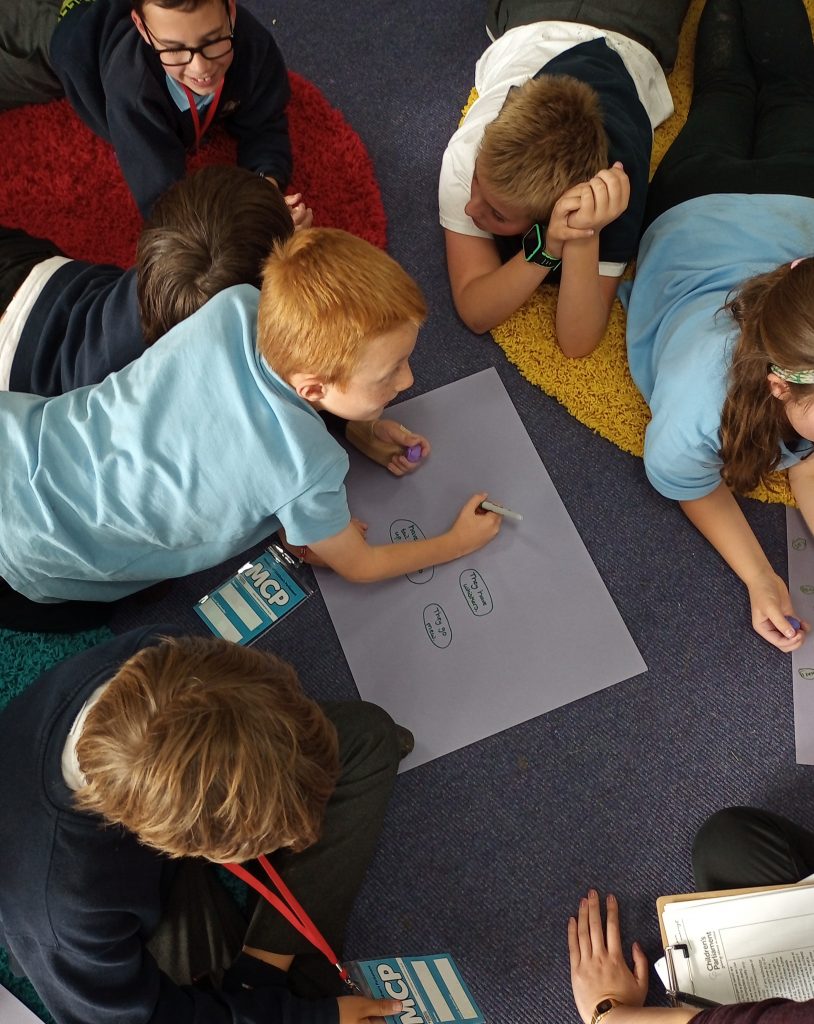
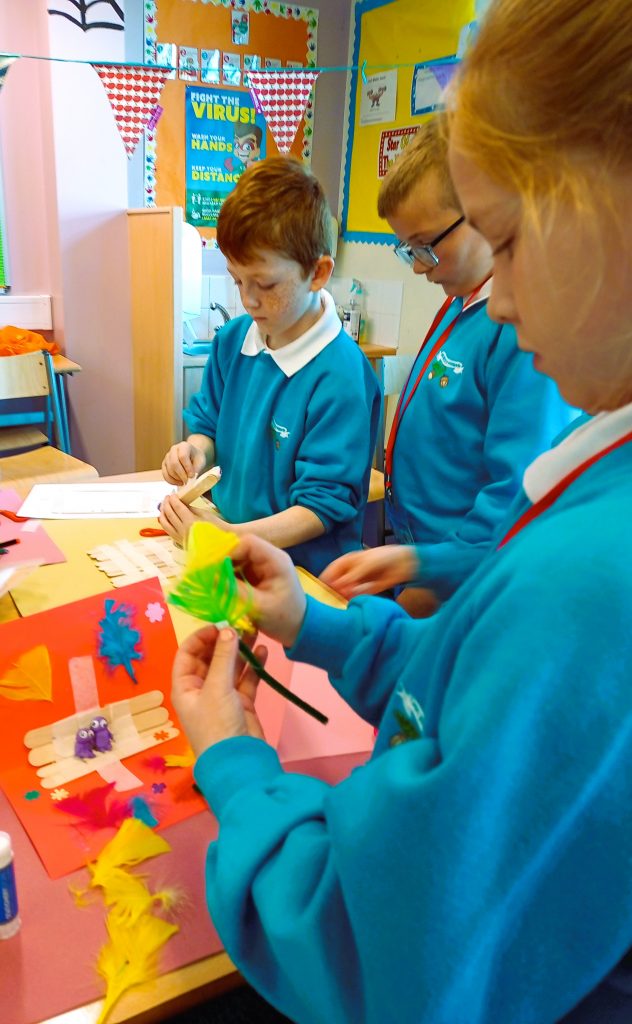
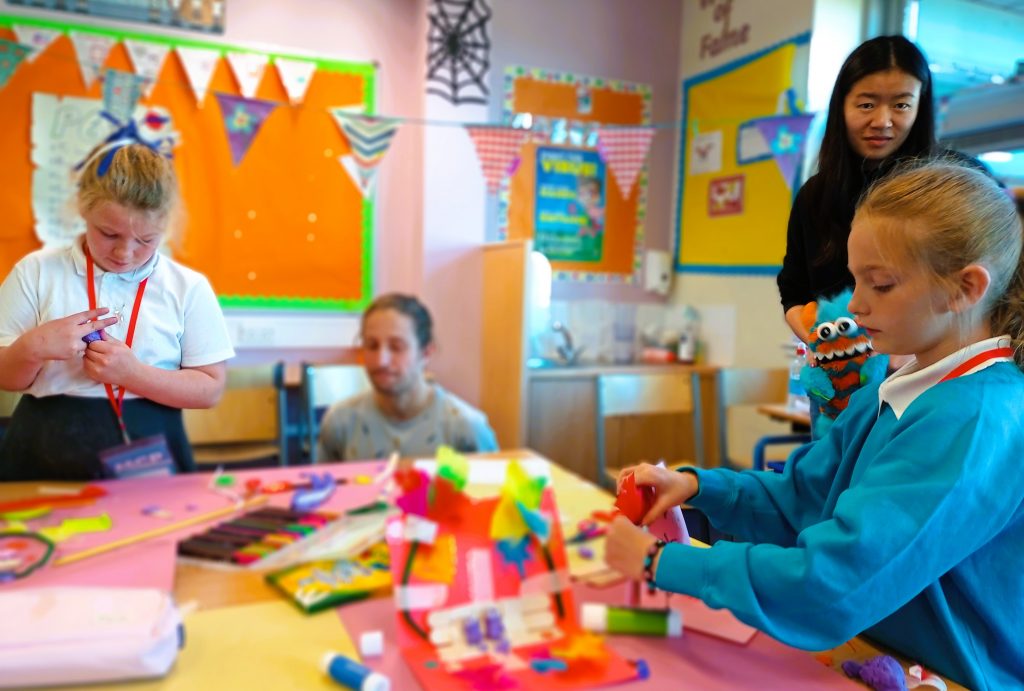
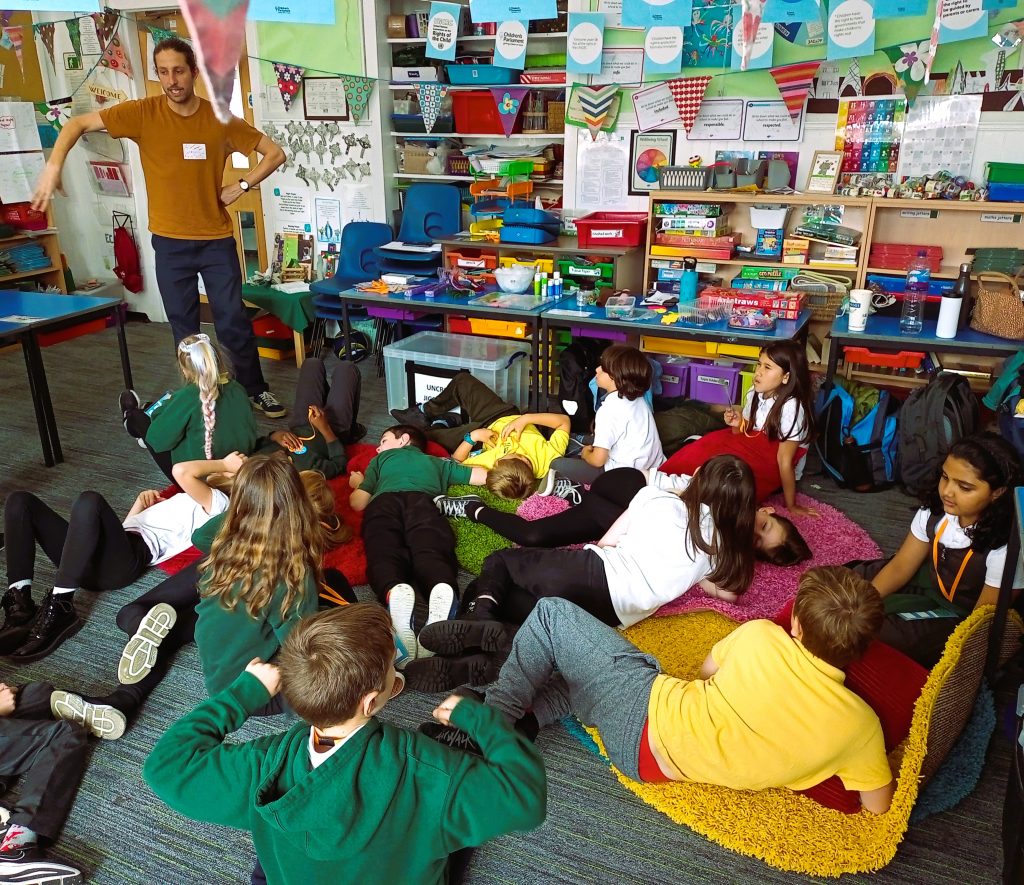
Over 1,200 children living in Scotland completed a digital survey in June 2023 which explored their views and ideas on AI, and its use and development in relation to their human rights. Each survey was completed anonymously by children aged eight-14 years old, supported by school staff but independently filled out by children. The survey and accompanying facilitation instructions for teachers and other supporting adults were designed and produced by Children’s Parliament. Have a look at some of the key results in the charts and word maps shown on the graphic.
Children could express their views and ideas in more depth through two open-ended questions on the survey if they wished; the answers to those questions will form a part of the evidence for the project’s next report. Another national survey, aimed at understanding Scottish children’s priorities when it comes to AI, will be launched in 2024.
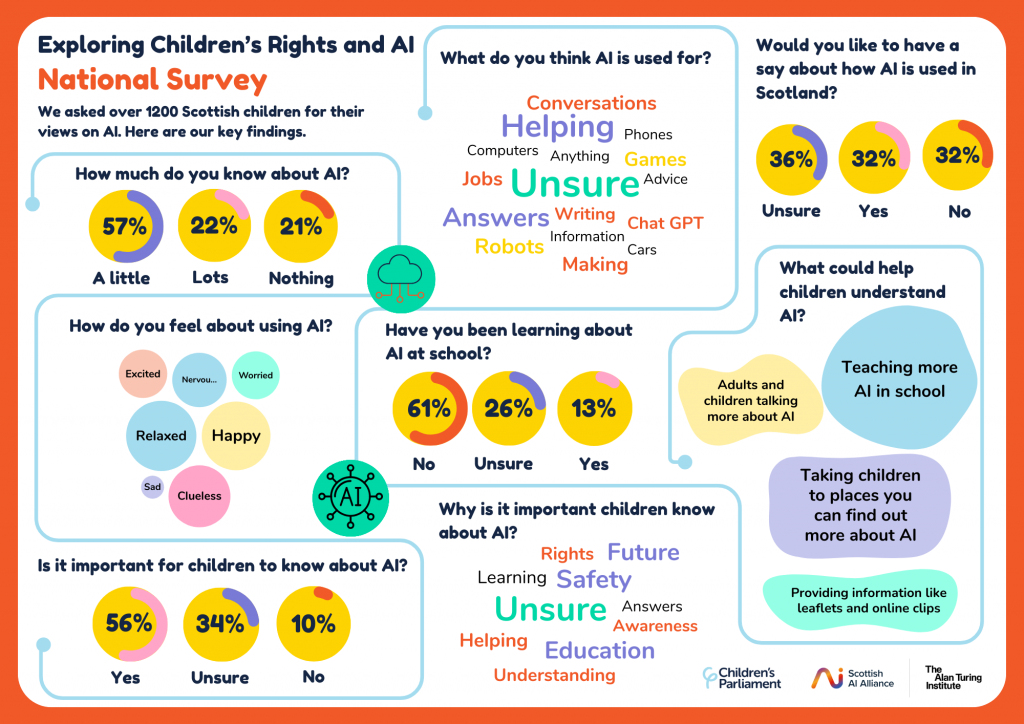
The survey results show a clear need for improved education around AI for children. 57% of children said they know only a bit about AI, and 21% said they knew nothing at all. Combined with the fact that 61% of children also told us that they don’t learn about AI in school, this shows a definite gap in the curriculum on the topic for primary-school aged children and beyond.
56% said that it is important for children, including younger children, to know about AI, and that the best ways for them to learn about it are through ‘teaching more in school’, ‘taking [them] to places where [they] can find out about it’, and ‘adults talking more with [them] about AI.’
A general feeling of uncertainty around AI was also reflected in children’s answers to the question ‘would you like to have a say about how AI is used in Scotland?’, with 36% responding ‘unsure’ and only 32% responding ‘yes’. Meanwhile, a majority of children reported knowing ‘a lot’ about their rights but only ‘a little’ about AI. This shows that greater access to education on AI might support children to be rights-bearers and make informed decisions when invited to contribute their views on AI use and development.
While feelings such as ‘nervous, ‘worried’, and ‘sad’ were commonly expressed in relation to AI, so too were ‘happy’, ‘excited’, and ‘relaxed’, and children frequently expressed the view that AI is used for helping people. Children let us know that it is important for them to know and learn about AI because it helps them feel safe and will help them prepare better for their futures.
Follow us online using: #ChildrenShapingAI
You can read more about the project on our partners’ websites here:
https://www.scottishai.com/news/exploring-childrens-rights-in-ai
https://www.turing.ac.uk/research/research-projects/exploring-childrens-rights-and-ai
Our latest blogpost can be found here.
You can also listen to our introductory podcast episode here: https://spoti.fi/3TT5VHR
Keep up to date with progress in stages 2 and 3 by checking back in on our website and following the Children’s Parliament social media channels.
Children’s Parliament (@Creative_Voices) / Twitter
Children’s Parliament (@childrensparliament) • Instagram photos and videos